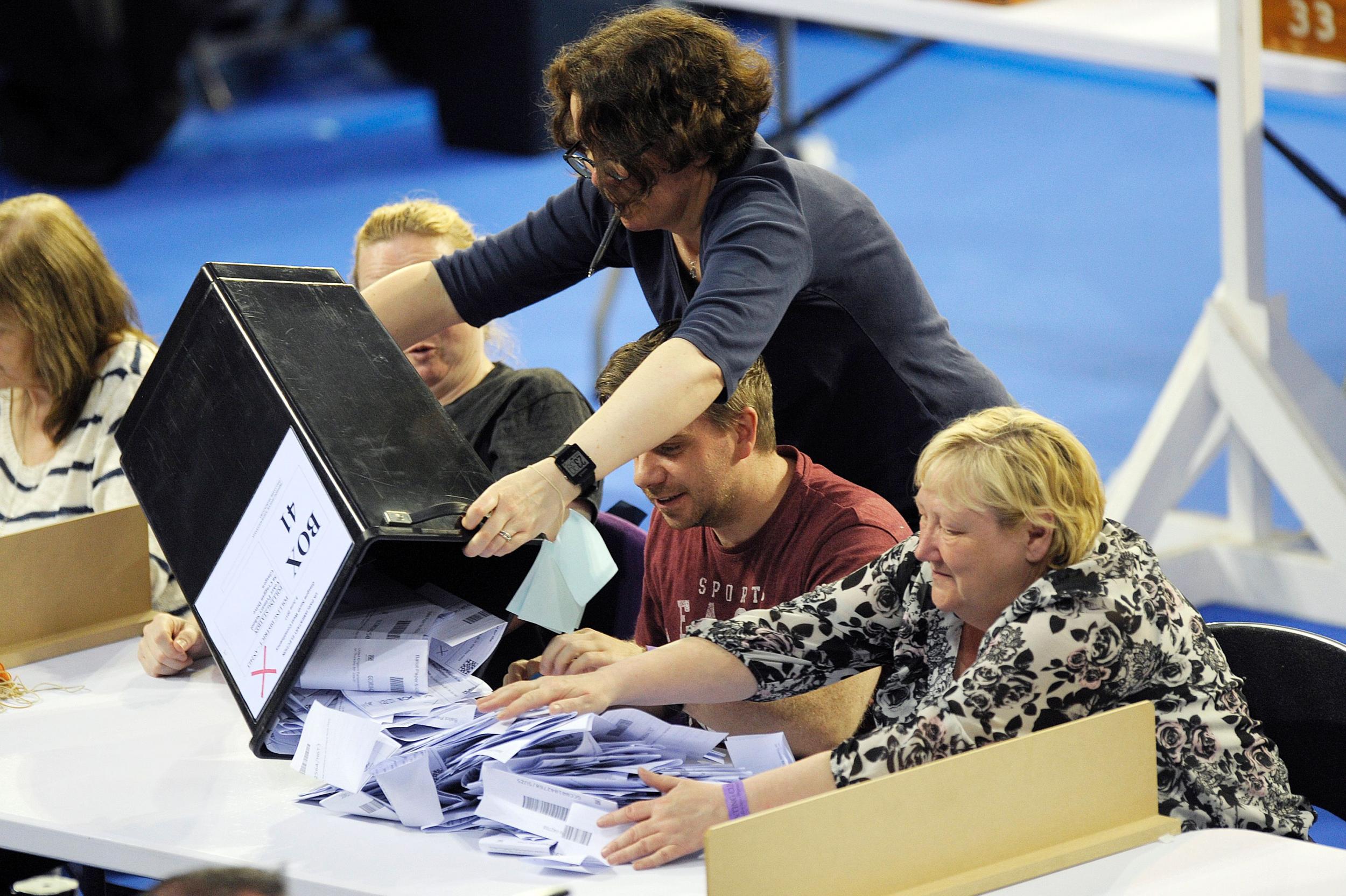Now is the time to use your vote and make one of the most important decisions in a generation
No voice should go unheard and that is why registering to vote is so important

Today The Independent is calling on everyone to participate in this, the most critical election in a generation. The votes cast on 12 December will set the path the nation will follow over Brexit, the economy and the NHS and all must make their voices heard.
We are not seeking a particular outcome, we just believe that not exercising your democratic right at this time would be a terrible waste.
It comes as the independent Electoral Commission says one in four black and Asian people is not registered to vote. Meanwhile, one in three teenagers are not registered either – with just one week until the deadline to do so. That compares to only 6 per cent of pensioners.
Non-registration is also high among 20- to 24-year-olds (at 32 per cent) and among 25- to 34-year-olds (26 per cent), the commission has warned.
It estimates that 25 per cent of black voters in Great Britain, 24 per cent of Asian voters and 31 per cent of people with mixed ethnicity are not on the electoral register, far more than the overall average of 17 per cent. The commission believes a total of between 8.3 million and 9.4 million eligible voters are not correctly registered at their current address.
These are depressing statistics. Turnout at the 2017 general election, at 69 per cent overall, was estimated by Ipsos Mori to be 11 percentage points higher among white people than the black and minority ethnic (BME) population.
A prime minister who professes to be a “One Nation Conservative” should be worried about this relative lack of engagement among BME groups. It is another sign that too many communities lead parallel lives and a reminder that much greater efforts are needed to make integration a reality rather than a mere aspiration.
Black people in particular, facing discrimination in the criminal justice system, may be wary about providing personal information to the authorities. Some understandably view with suspicion a system that allowed the Windrush scandal to happen. Some voters, including many young people, will think that registering and voting is a waste of time because politicians offer them nothing.
It is up to politicians in all parties to prove them wrong. A good start would be introducing automatic enrolment on the electoral register using data already held by public bodies such as the DVLA, HMRC, the passport office, the benefits system and local authorities. If such enrolment can guarantee workers a pension, why not for the fundamental right to be able to vote? Employers and companies like the tech giants could play their part by encouraging people to register. So could friends and neighbours. This would help lift registration as a whole.
There will be justifiable suspicions that it would not be in the Tories’ narrow self-interest to raise the turnout among ethnic minorities; some of their actions have made it harder for university students to register. Young people are overwhelmingly opposed to Brexit, while older generations are in favour, this could make a difference on election day with the Conservatives having campaigned strongly on a “get Brexit done” message.
Ipsos Mori found that only one in five BME voters backed the Tories at the last election, while three in four supported Labour. If Theresa May had closed this gap, she would have won a majority of 42.
It is an indictment on the Tories that being non-white remains one of the strongest demographic predictors of not voting for the party. Yet it would be very short-sighted for the Tories to regard ethnic minorities as something of a lost cause. They represent about 15 per cent of the population and about 10 per cent of the electorate, a gap caused partly by under-registration. BME groups are a pool of three million voters, whose age profile makes them a rising proportion of the electorate.
The Tories would be wise to listen to the advice of Andrew Cooper, the pollster who was David Cameron’s director of strategy, who pointed out that the party holds only one seat where the Black, Asian and minority ethnic population is 30 per cent or higher. Before 1987, there were no constituencies in that category. By 2022, there will likely be more than 120. Lord Cooper warned: “Unless something changes, before long there just won’t be enough white voters in the electorate for the Conservative Party to be able to win.”
There is still time to do something about the missing names on the register in time for the 12 December election. It is much easier than many people think to register to vote online, taking only five minutes. The deadline is 26 November. People can register here. The more who do, the better.
Join our commenting forum
Join thought-provoking conversations, follow other Independent readers and see their replies
Comments